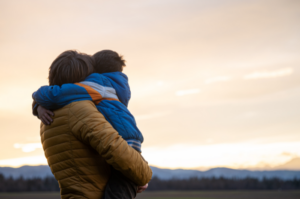Here come the holidays — and perhaps pointed expectations to gather with family. But what if you’re feeling pressure to be with relatives who you’re not sure you can trust?
First, never assume that family members are safe and supportive just because “they’re family.” A safe person is someone who takes responsibility for their actions and readily encourages you in your own journey.
Second, let’s state the obvious: There’s no such thing as a perfect family. People who we expect to love us perfectly will let us down at some point, and we’ll let them down, too. However, there’s a difference between to-be-expected hurt and intentional harm.
Occasional hurt is part of family life
A healthy family committed to each other still experiences misunderstandings, disagreements, selfishness, and other bummer moments. Yet they build strong communication skills and resolve conflict quickly and effectively. Even when they don’t agree, they let each other be.
Take, for example, the cousin who picks at every little thing you wear — or the uncle who demeans your career while not holding down a job of his own. Yes, those interactions can be awkward and annoying, but they’re not unsafe.
True harm causes lasting damage
Sometimes relationships are genuinely unsafe (often described as toxic). This is where we see emotional, verbal, physical, sexual, or spiritual abuse. A truly unsafe person intends for their actions or words to hurt, intimidate, threaten, damage, or destroy.
In these relationships, “love” has strings attached. There’s no tolerance for individuality. Emotions aren’t allowed, or they’re mocked or dismissed. Apologies and remorse are rare or nonexistent. Bullying and emotional blackmail can be obvious or veiled (like, I was only joking).
In an unsafe relationship, there’s always negative fallout when the healthy person tries to establish boundaries against the one causing harm.
Some relationships might be awkward but are still safe
Before you write off a relationship or avoid a specific event, make time to decide whether a relationship is legitimately unsafe or just awkward. Psychologists Henry Cloud and John Townsend suggest three things to look for in a safe relationship:
- It draws us closer to God. (Matthew 22:37-38)
- It draws us closer to others. (Matthew 22:39)
- It helps us become the person God created us to be. (Ephesians 2:10)
No family member is perfect. However, if they aren’t unsafe — if they’re just unpleasant — give them the benefit of the doubt and pray about spending time with them. God can help you manage your expectations and deal with difficult people.
NOTE: Some situations are worth the potential fallout from unsafe people (for instance, your parents’ golden anniversary or the imminent death of a sibling). Still, there are steps you can take to lessen the impact. Our full article offers a decision-making model for event attendance: Just Annoying, or Truly Unsafe? How to Navigate Get-Togethers With Difficult Family. You can also dive deeper into the concepts we touched on here, and you’ll find a list of recommended resources.































































